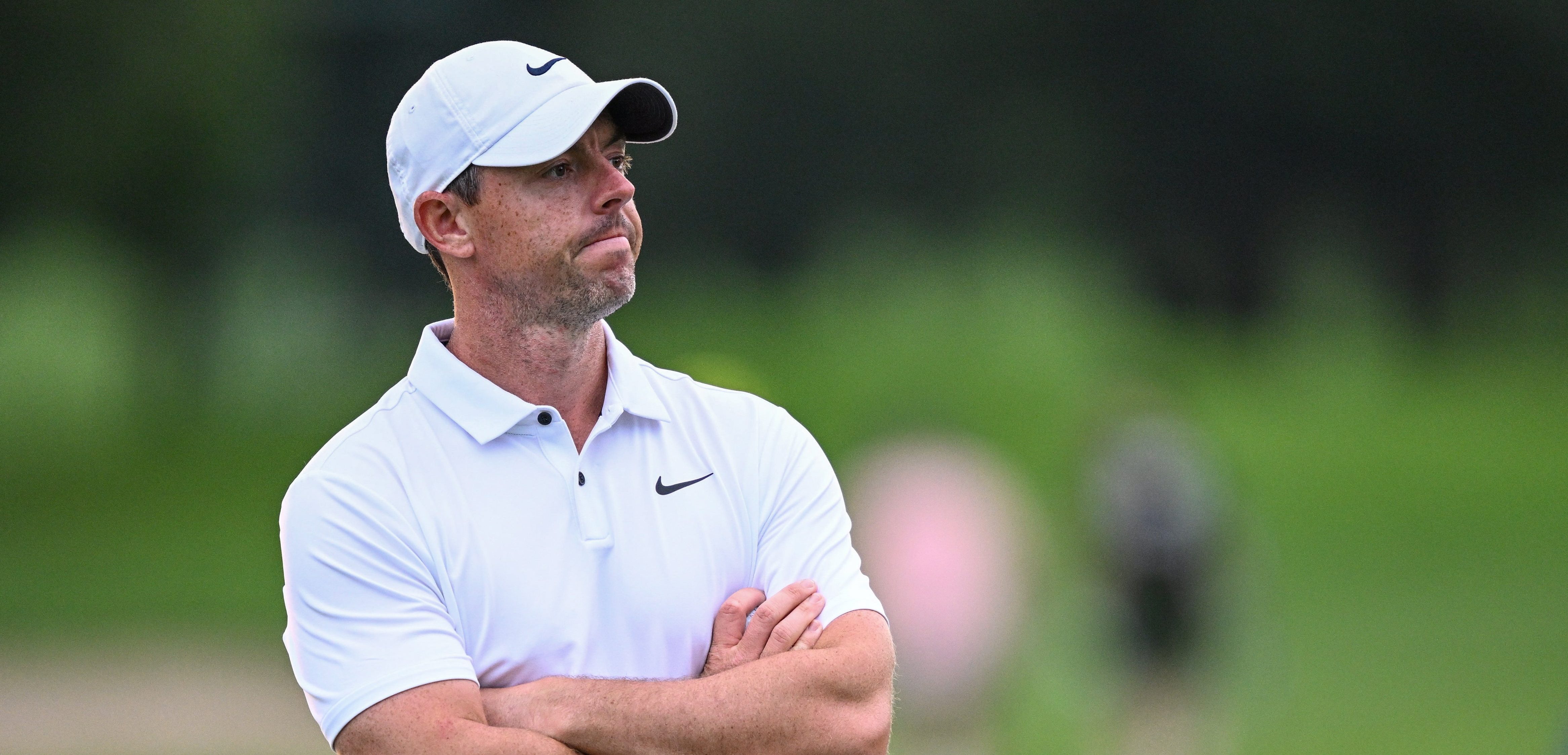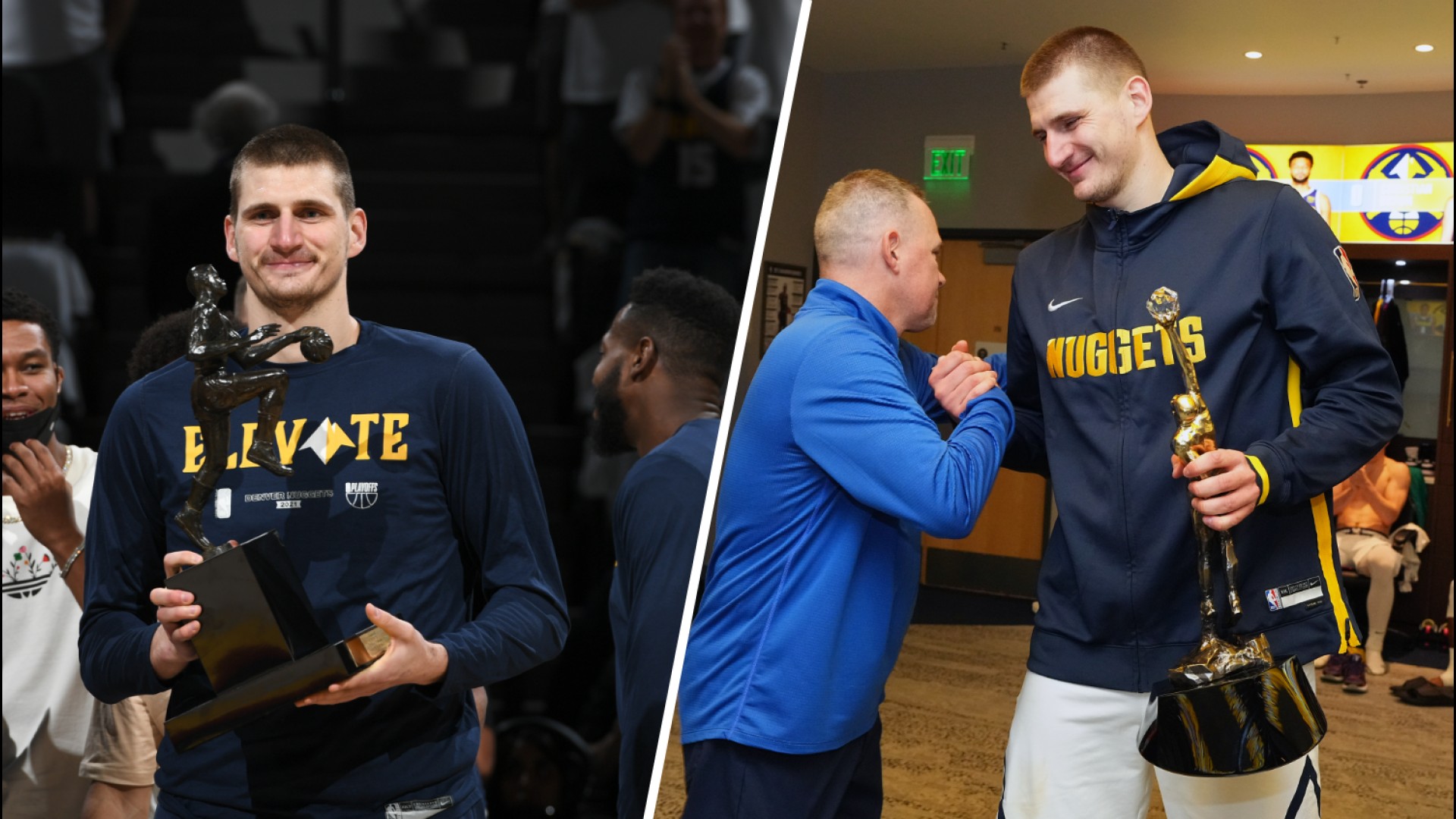With the Capitals' 2013-14 season over, the time has come to reflect on the year that was. Throughout the week, I will examine the Capitals by position.
The fourth and final part takes a look at Washington's top six forwards.
Alex Ovechkin
- League-leading 51 goals, 79 points in 78 games.
For the fourth time in his nine-year NHL career, Ovechkin won the Maurice "Rocket" Richard Trophy as the league's top goal-scorer. He also became the 11th player in NHL history to score 50 goals in five separate seasons.
Yet the electric superstar has long been a lightning rod for criticism, and that distinction will not change this summer after the Capitals missed the playoffs for the first time in seven years.
Sports
While some of the bombs being lobbed at Ovechkin are a bit sensational, there are some concerning statistics worth pointing out. Of course, the most obvious is his minus-35 rating as he became perilously close to becoming the first player to ever lead the NHL in goals and have the worst plus-minus rating. Plus-minus is a flawed statistic, but the sheer volume of goals against that Ovechkin was on the ice for is alarming (a team-leading 60 at even-strength and fifth-most among all NHL forwards with at least 62 games played).
Next season, Ovechkin must prove that he has not become a one-dimensional power-play specialist. That will come with increased production at even strength, which has been gradually sliding for years. From 2007-08 to 2010-11, he averaged .88 even-strength points per game. Since then, that number has plummeted to .55 per game. This season, he averaged roughly .44 per game.
Ovechkin went the entire month of March without an even-strength point and a career-high 16 straight games without an even-strength goal. Considering how much the Capitals rely on Ovechkin to score and win (10-19-9 this season in games which Ovechkin played and did not score), droughts like that will only sink the team.
Nicklas Backstrom
- Eighteen goals, 79 points in 82 games
Throughout his career, Backstrom has been comfortable ceding the spotlight to his more magnetic linemate, but the franchise center is not immune to criticism.
Backstrom tied Ovechkin atop the team's scoring leaderboard this season with 79 points. Yet that was padded by a league-leading 44 power-play points. In all, Backstrom finished with 31 even-strength points, just three more than he had in 34 fewer games during the lockout-shortened season. His possession numbers also took a two-percent dip from last season and were his lowest in the past three seasons.
The 26-year-old has always been a pass-first player (only three players have more assists since he entered the NHL in 2007-08), so the Capitals would benefit from him becoming more of a goal-scoring threat moving forward. Backstrom had a 9.2 shooting percentage this season, lower than his 11.3 percent career average (though it was roughly equivalent to the league average). At even strength, that shooting percentage was about 8.4 percent (11 goals on 131 shots), not enough for opponents to key in on him in that regard.
With space to operate, Backstrom must make opponents pay for leaving him open in more ways than one.
Marcus Johansson
- Eight goals, 44 points in 80 games
Often one to float around unnoticed through his first three seasons in the NHL, it seemed that Johansson was making strides to become more assertive this season. Yet that emergence did not last and Johansson once again receded into the background.
Despite appearing in all but two games this season, Johansson scored just two even-strength goals and has five in the past two seasons. Frankly, those are unacceptable numbers for a player who is relied on as a top-six fixture.
The question surrounding Johansson that must be answered is whether or not he should remain in such a position when his contributions have not been consistent enough to warrant that kind of role.
Troy Brouwer
- Career-high 25 goals and 43 points in 82 games
Brouwer ended the season with a flourish, scoring 15 goals in his final 27 games to overcome a slow start and set a career-high with 25. No player in the NHL had more multi-goal games than Brouwer's five between Feb. 1 and the end of the regular season.
The coaching staff entrusted Brouwer with plenty of responsibility. He was the only forward and one of two skaters (defenseman John Carlson being the other) to average more than three minutes per game on the power play (3:25) and more than two minutes on the penalty kill (2:06).
Going forward, the Capitals should pair Brouwer with a skilled playmaker (as they did with Mike Ribeiro in 2012-13) in order to maximize his offensive output. Brouwer spent more ice time with Brooks Laich than any other forward (35.9 percent), but their similar playing styles did not complement each other. When on the ice together, only 46.8 percent of shots went towards the opposing net. As a point of comparison, when skating alongside Mikhail Grabovski, that number increased to 51.6 percent.
Brooks Laich
- Eight goals, 15 points in 51 games
When the Capitals signed Laich to a six-year, $27 million contract following the 2010-11 season, he had proved his worth as a multifaceted iron man. Three seasons later, Laich has spent more time on injured reserve and on an operating table than on the active roster.
A debilitating groin injury initially suffered while playing overseas during the NHL lockout has cost Laich 70 regular-season games over the past two seasons. He has undergone season-ending surgeries in each of the past two years.
When he did play this season prior to being shut down, he was in what he described as "survival mode."
"The first 20 games, I felt okay, but I wasn’t sure coming off the procedure from last year and then after that it was such a nose-dive where I was just trying to survive that day and I’ll deal with trying to practice tomorrow or trying to play tomorrow,” Laich said. “Honestly, from mid-November on it was a day-by-day kind of year for me. It’s impossible to get the work in at practice that you need, get the workouts in off the ice that you need, it’s impossible to prepare and to excel at the game when you’re just trying to survive like that.”
In his final media availability, Laich professed that he will be "100 percent ready to resume [his] career and excel at the game, not just participate, come training camp." Unfortunately, that is a refrain that we have heard consistently from the 30-year-old that has gone unfulfilled.
With that being said, the Capitals must decide if paying Laich, who has three years and $13.5 million remaining on his contract, is worth such a risk. He is their most logical compliance buyout candidate, though that possibility is in question because he failed his exit physical.
There is little to suggest that Laich will regain his consistent form, let alone play on a regular basis. Despite his decade-long tenure with the organization, the Capitals must seriously weigh the option of letting Laich go.
Mikhail Grabovski
- Thirteen goals, 35 points in 58 games
When Grabovski became unexpectedly available after being bought out by the Toronto Maple Leafs last summer, the Capitals pounced on the opportunity to sign him. After spending the early portion of the season centering Jason Chimera and Joel Ward to gain a feel for how Oates wanted him to play, Grabovski moved into the top six. He was the Capitals' best forward at driving possession and seemed to mesh instantly with whoever he played with.
Grabovski was certainly a welcome addition, but he is the only player who appeared on Washington's opening night roster not under contract for next season. He admitted at the end of the season that the uncertainty regarding the respective futures of coach Adam Oates and general manager George McPhee is affecting how he proceeds in negotiations.
The loss of Grabovski, who is believed to be seeking a four- to five-year contract worth around $5 million annually, would once again leave the Capitals without a second-line center, an ever-revolving position that rarely stays filled for more than one season at a time.
Evgeny Kuznetsov
- Three goals, nine points in 17 games
Nearly four years after being drafted, Kuznetsov made his highly anticipated NHL debut in March. The 21-year-old impressed in 17 games, flashing glimpses of his offensive potential while also assuaging concerns about how he would transition to the more physically demanding NHL style of play.
Thrust into a playoff race upon his arrival, the Capitals hoped to get a head start on Kuznetsov's acclimation process. Promising early returns bode well for what will likely be an increased role next season.
What that role will be is the most intriguing aspect. Kuznetsov saw time at both center and left wing throughout the lineup and where the team ultimately believes he will slot in will play a part in shaping the roster around him.
Follow Adam on Twitter @AdamVingan and e-mail your story ideas to adamvingan (at) gmail.com.



